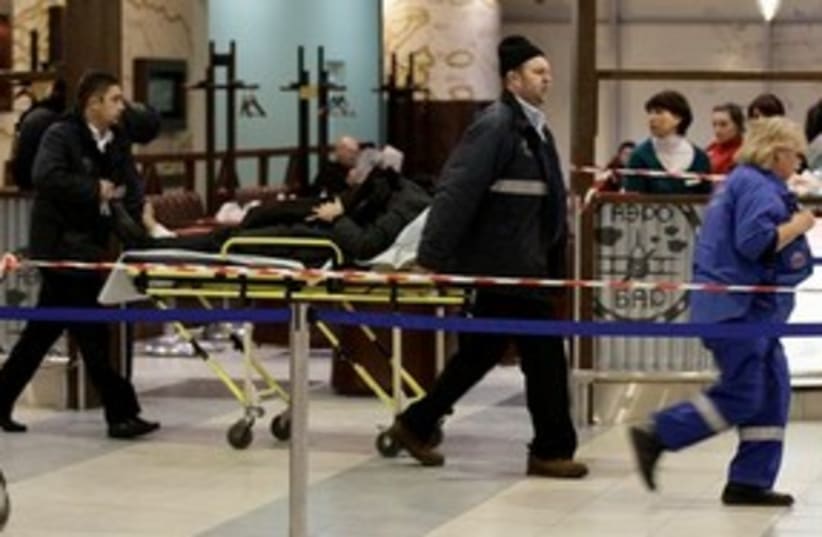RELATED:'The war in the Caucasus may last a hundred years'Netanyahu: Response to terror must be internationalIslamist rebels from the Caucasus, a group of mountainous Russian provinces that are beset with an entrenched separatist insurgency, had been widely suspected in the attack at Domodedovo Airport.Saturday's statement from federal investigators confirmed a suicide blast involving a bomb containing shrapnel. While authorities say they know the identity of the perpetrator, they suggested they still don't know who masterminded the attacks."Despite the fact that we know the name of the terrorist, we won't name him today ... since investigative searches are ongoing to identify and detain the organizers and accomplices of the terrorist act," the statement said.Investigators also confirmed fears that foreigners in Russia had for the first time entered the terrorists' crosshairs; the victims included one person each from Britain, Germany, Austria, Ukraine, Tajikistan, Kyrgyzstan and Uzbekistan. There were at least 16 Russians among the dead."It was no accident that the terrorist act was carried out in the international arrivals hall. According to the investigation, the terrorist act was aim first and foremost at foreign citizens," the statement said.No one has yet claimed responsibility, however, for the blast, the latest in a surge of attacks that the Kremlin appears helpless to stop. Critics say attacks have risen sixfold since Vladimir Putin became president — on a ticket to fight the scourge of terrorism — in 2000.
Russia identifies airport bomber as Caucasus man
Suicide bomber who killed 35 at Moscow airport came from volatile region of Islamist rebels; investigators say foreigners deliberately targeted.

RELATED:'The war in the Caucasus may last a hundred years'Netanyahu: Response to terror must be internationalIslamist rebels from the Caucasus, a group of mountainous Russian provinces that are beset with an entrenched separatist insurgency, had been widely suspected in the attack at Domodedovo Airport.Saturday's statement from federal investigators confirmed a suicide blast involving a bomb containing shrapnel. While authorities say they know the identity of the perpetrator, they suggested they still don't know who masterminded the attacks."Despite the fact that we know the name of the terrorist, we won't name him today ... since investigative searches are ongoing to identify and detain the organizers and accomplices of the terrorist act," the statement said.Investigators also confirmed fears that foreigners in Russia had for the first time entered the terrorists' crosshairs; the victims included one person each from Britain, Germany, Austria, Ukraine, Tajikistan, Kyrgyzstan and Uzbekistan. There were at least 16 Russians among the dead."It was no accident that the terrorist act was carried out in the international arrivals hall. According to the investigation, the terrorist act was aim first and foremost at foreign citizens," the statement said.No one has yet claimed responsibility, however, for the blast, the latest in a surge of attacks that the Kremlin appears helpless to stop. Critics say attacks have risen sixfold since Vladimir Putin became president — on a ticket to fight the scourge of terrorism — in 2000.